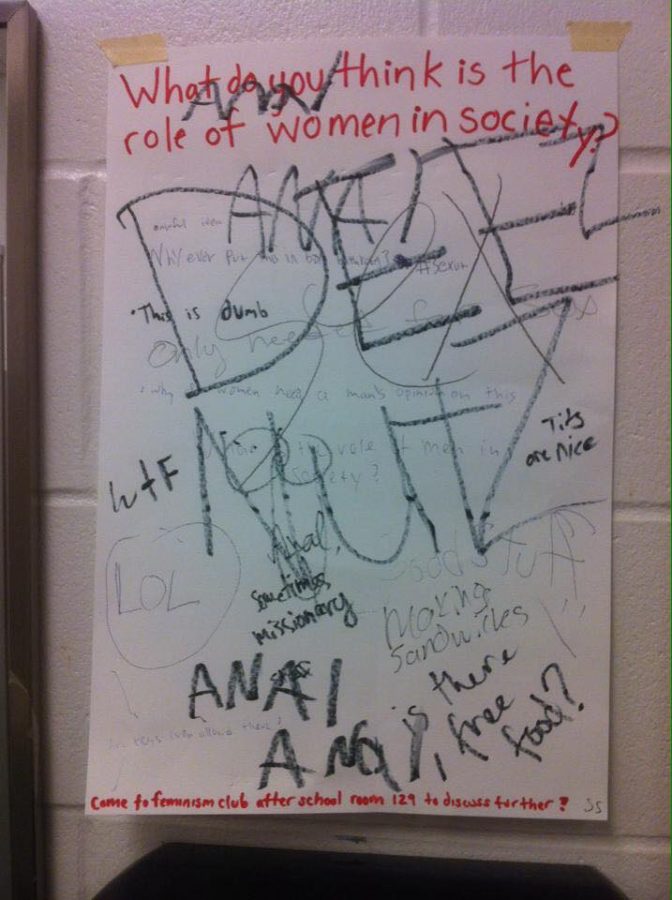by Lucy Lu
Students of the leadership class discussed the bathroom posters posted last week by the Feminism Club and Dialogues on Race G-block yesterday.
Led by English teachers Peter Goddard and Michelle Leong, students sat in a circle, commenting on the role of perspective in response to feminism and racism.
Senior Eugene Oh began the discussion with an anecdote regarding the racial slurs made by South students at a soccer game two weeks ago, which the school later dismissed. “A lot of these issues with race and prejudice still exist,” he said, “but people are too afraid to talk about it.”
Students debated the “people are immature” mentality regarding prejudice—some students questioned the amount of weight put on the experiment of the bathroom posters, whereas others said they believed the posters brought hidden opinions to light.
“I think the fact that it was anonymous showed the truth about it,” said senior Conor Larkin. “You can say you’re not sexist or racist, but it’s what you do when people aren’t watching that defines who you are.”
Similarly, Leong said she believed the experiment was reliable in gathering true opinions: “It brings to light the things that we don’t want to say or do.” She said, “But if these are things we feel free to express on the walls of a bathroom where no one is watching, then these are things worth having conversations about`.”
Whether or not the opinions on the bathroom posters were honest, students wondered why such an experiment caused conflict on Facebook as well as in conversation.
“I was having a conversation with someone about the feminism posters,” said senior Mirabelle Espady. “He tried to convince me that women needed to earn their respect, and it baffled me how he could say that.”
In response to Espady, senior Natasha Yunen proposed that “people put feminism down because they think it has to do so much with women and not enough with men.”
Senior Nadav Konforty agreed in that “feminism destroys this fragile, masculine ego; the idea of brute strength associated with men is archaic, and women have always been the insult,” he said.
Regardless of the various opinions discussed, Goddard pointed out that there is always more progress to be made. “The work is never over,” he said. “What makes this challenging to discuss is that everyone has dark areas, even the people you know and love.”
Leadership class discusses feminism, racism
November 4, 2015
0
Tags:
Donate to The Newtonite
More to Discover
















































